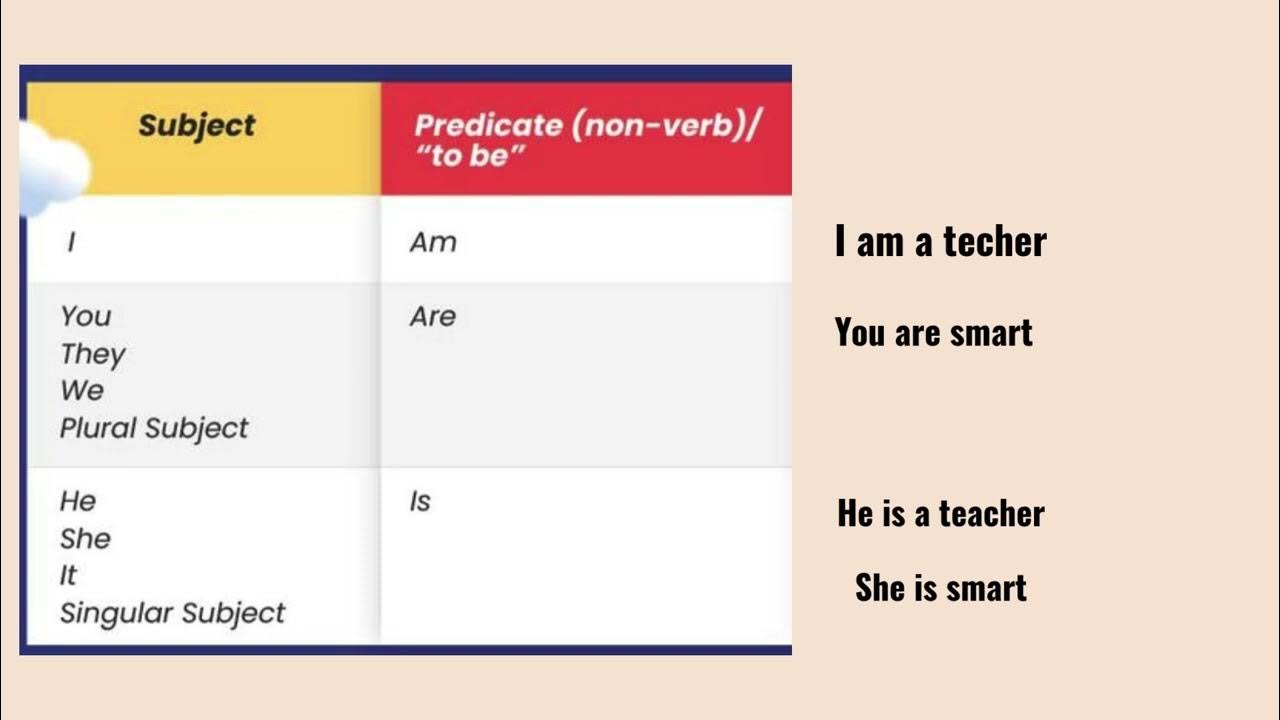lesson 1 do or does
Summary
TLDRThe video explains the use of 'do' and 'does' in English, highlighting their applications in different grammatical contexts. 'Do' is used for I, you, we, and they, while 'does' is for he, she, and it. The instructor emphasizes the importance of rising intonation in questions and provides examples in English, Indonesian, and Javanese to illustrate these concepts. Additionally, students are encouraged to create examples in their native languages. The lesson focuses on clarity in pronunciation and understanding the differences in language use across cultures.
Takeaways
- 😀 The difference between 'do' and 'does' is emphasized, with 'do' used for 'I', 'you', 'we', and 'they'.
- 😀 'Does' is specifically used for third-person singular subjects: 'he', 'she', and 'it'.
- 😀 The lesson explains the importance of understanding subject-verb agreement in English.
- 😀 The speaker notes that 'do' can be used for multiple subjects, including plural forms.
- 😀 Intonation is crucial in English, especially when forming questions or short answers.
- 😀 An example question is given: 'Do you hear me?' with a rising intonation to indicate a yes/no answer.
- 😀 The speaker provides translations of example sentences in English, Indonesian, and Javanese.
- 😀 Cultural context is included by mentioning the speaker's background in the Javanese language.
- 😀 The lesson encourages students to practice by recording their responses in video format.
- 😀 The transcript highlights the importance of practicing different languages and understanding their nuances.
Q & A
What is the primary focus of the transcript?
-The transcript focuses on explaining the difference between the use of 'do' and 'does' in English grammar.
When is 'do' used in sentences?
-'Do' is used with the subjects I, you, we, and they, as well as plural nouns.
How is 'does' used differently from 'do'?
-'Does' is used with third-person singular subjects, such as he, she, and it.
Can you give examples of sentences using 'do'?
-Examples include: 'Do you like coffee?' and 'Do they understand the lesson?'
What are examples of sentences using 'does'?
-Examples include: 'Does she play soccer?' and 'Does it rain often here?'
What is meant by 'rising intonation' in questions?
-Rising intonation refers to the pitch of the voice going up at the end of a question, indicating a short answer is expected, like 'yes' or 'no'.
How is the Indonesian translation of 'Do you hear me?' structured?
-In Indonesian, it translates to 'Apakah kamu dengar saya?' which maintains the question form.
What is the meaning of 'mother tongue' in the context of the transcript?
-'Mother tongue' refers to the first language learned by an individual, which in this case is identified as Javanese.
Why is it important to be careful with pronunciation in using 'do' and 'does'?
-Correct pronunciation ensures clarity and understanding, especially in questions where mispronunciation can change the meaning.
What kind of exercises are suggested for practicing these concepts?
-The transcript suggests recording speaking exercises and using video to practice sentences with 'do' and 'does'.
Outlines

Cette section est réservée aux utilisateurs payants. Améliorez votre compte pour accéder à cette section.
Améliorer maintenantMindmap

Cette section est réservée aux utilisateurs payants. Améliorez votre compte pour accéder à cette section.
Améliorer maintenantKeywords

Cette section est réservée aux utilisateurs payants. Améliorez votre compte pour accéder à cette section.
Améliorer maintenantHighlights

Cette section est réservée aux utilisateurs payants. Améliorez votre compte pour accéder à cette section.
Améliorer maintenantTranscripts

Cette section est réservée aux utilisateurs payants. Améliorez votre compte pour accéder à cette section.
Améliorer maintenant5.0 / 5 (0 votes)






